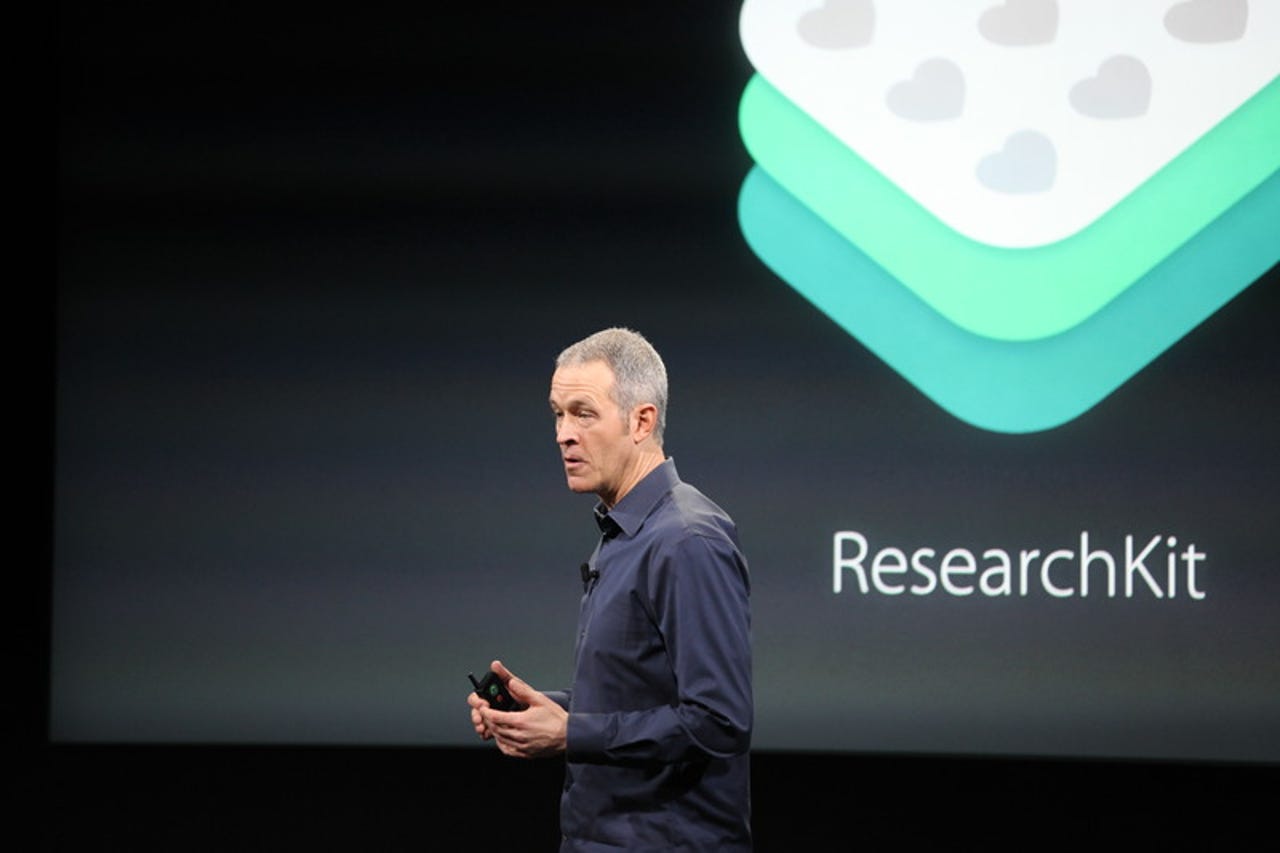GlaxoSmithKline using Apple's ResearchKit for clinical research


Apple's ResearchKit is a framework for gathering health data from iOS devices for medical research.
GlaxoSmithKline (GSK) is using Apple's ResearchKit to conduct clinical research on rheumatoid arthritis, making it the first pharmaceutical company to use the Apple product.
The study marks a major milestone for ResearchKit, which after its launch in March 2015, quickly piqued the interest of researchers and consumers. ResearchKit is a framework for gathering health data from iOS devices for medical research. Just a few weeks after it launched, more than 60,000 people had signed up to participate in trials running on the system, Apple CEO Tim Cook said, giving researchers a relatively large group of participants to tap for clinical trials.
GSK built an app using ResearchKit for its Patient Rheumatoid Arthritis Data from the Real World (PARADE) study. The study isn't testing any medication -- instead, the pharmaceutical company is going to analyze the data it collects to determine what studies it should design to develop drugs more effectively.
The PARADE app will use iPhone sensors to track common rheumatoid arthritis symptoms like joint pain, fatigue, and mood. It will also track activity and quality of life metrics for 300 patients over a three-month period. Patients using the app can access and share their personal data via a dashboard.
As Bloomberg noted, there are risks involved with using ResearchKit to collect data: the price point of an iPhone may skew the research pool, while participants may not use the app correctly.
Still, Rob DiCicco, GSK's vice president for clinical innovation, noted in a statement that the app makes it far easier for patients to participate in clinical trials by eliminating the need to regularly go to a doctor's office. "By making research as easy and accessible as possible for patients, we have the potential to disrupt the model for how we conduct research in the future and ultimately improve patient health," he said.
Meanwhile, Apple continues to build out its offerings in the potentially lucrative sector of IT-enabled health care. Along with ResearchKit and HealthKit, which lets users track their health and fitness data, Apple this year unveiled CareKit. The new framework will enable developers to build apps that allow patients to manage their medical conditions.